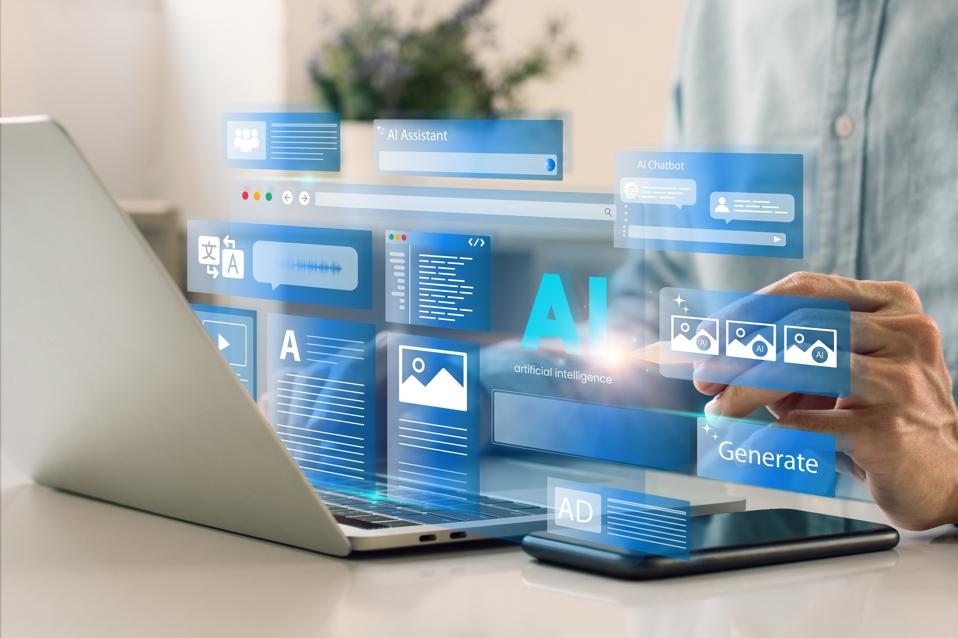“Unfortunately, we’ve decided to go with another candidate.” If you’ve been looking for work, that dreaded phrase probably haunts you–especially if you felt you nailed the job interview. The good news is that you can finally shift the odds in your favor. In today’s competitive market, AI has emerged as a powerful interview preparation tool that can transform anxiety-ridden job interviews into opportunities to showcase your best self.
According to a survey by Resume Builder, 51% of companies already use AI tools in their hiring processes—expected to jump to 68% by the end of 2025. You aren’t just gaining an edge by leveraging AI solutions to prepare for your next job interview. You’re leveling the playing field against employers who are using the same technology.
AI-powered platforms can revolutionize your interview preparation process. Let’s explore five ways you can harness this technology to streamline your job search so you can land your ideal role.
1. Ace Your Company Research with AI
Before the job interview, it’s essential to understand the company’s culture and values. Instead of spending hours scrolling through corporate websites and social media, leverage AI tools like ChatGPT to synthesize information about your potential employer quickly.
Try prompts like: “Provide an overview of [company name]’s culture, values, recent news, and key challenges facing their industry in the next 2-3 years.”
These insights help you determine if the organization aligns with your values and provide thoughtful talking points for when the interviewer asks why you want to work there. Most importantly, understanding industry challenges allows you to frame your experience as solutions to their specific problems—positioning yourself as the answer to their needs.
2. Use AI to Identify Key Skills
Every job description contains valuable clues about what employers truly want from candidates. Copy the description into an AI tool and ask: “Identify the most important skills, attributes, and values in this job posting.” This analysis reveals patterns you might miss and highlights which aspects of your experience deserve emphasis.
Try this AI prompt for role-specific insights: “Name the top personality traits and skills associated with successful [your role].” With this information, select professional stories that demonstrate these qualities. Most hiring managers reject candidates who fail to address specific skills mentioned in job descriptions. This approach ensures you’re not one of them.
3. Practice with AI-Powered Mock Interviews
Studies suggest that candidates who engage in mock interviews are more confident, less anxious, and better prepared for the actual job interview. Unlike practicing with a friend or in front of a mirror, AI can simulate the unpredictability of real interviews and provide objective feedback.
LinkedIn offers a free AI-powered interview prep tool that allows you to:
- Choose specific questions relevant to your industry and role
- Record yourself answering these questions
- Receive automatic feedback on factors like pace, pitch variation, and filler words
Similarly, you can use ChatGPT and other tools to conduct mock interviews by asking them to play the role of interviewer for your specific position. After each response, ask for feedback on how you could improve.
4. Get AI Feedback on Your Answers
Polish your job interview responses by having AI evaluate their content, structure, and impact. Draft answers to common questions like “Tell me about yourself,” then use this prompt: “Analyze my answer to [question]. Is it compelling, concise, and memorable? What could improve?”
For behavioral questions, have AI verify that your responses follow the STAR method:
- Situation: Is the context of your experience clear?
- Task: Have you explained your specific responsibility?
- Action: Do you detail the steps you took?
- Result: Have you quantified the impact of your work?
Ask: “Does my answer include all STAR components, with quantifiable results?”
AI’s objective feedback identifies blind spots like jargon, vagueness, or missed opportunities to highlight transferable skills. Use these insights to refine your authentic voice instead of just memorizing AI-generated responses.
5. Optimize Your Follow-Up Communications
Your post-interview communications can significantly impact hiring decisions. Within 24 hours, use AI to draft a personalized thank-you email with this prompt: “Write a thank-you email for my interview at [company] for [position] that references our discussion about [specific topic].”
For extended hiring processes, try: “Draft a follow-up email showing continued interest for a position I interviewed for three weeks ago.”
When you receive a job offer, ask AI to suggest professional language for salary negotiations. Always review AI-generated communications critically. The goal is to enhance your authentic voice, not replace it with generic text that hiring managers can easily identify.
The Future of Job Interviews Is AI-Enhanced, Not AI-Replaced
As the job market becomes increasingly AI-driven, remember that technology is your ally, not your replacement. The most successful candidates will be those who harness AI’s analytical power while preserving their authentic human voice. Your next job interview isn’t just a test of your qualifications. It’s an opportunity to demonstrate how you combine technological fluency with distinctly human qualities like empathy, adaptability, and creative problem-solving. When you discuss your experience with AI tools, highlight how they’ve enhanced your decision-making rather than replaced it. Embrace these technologies, prepare with confidence, and step into your next job interview ready to showcase not just what you know but also how you think and grow in an evolving workplace.

